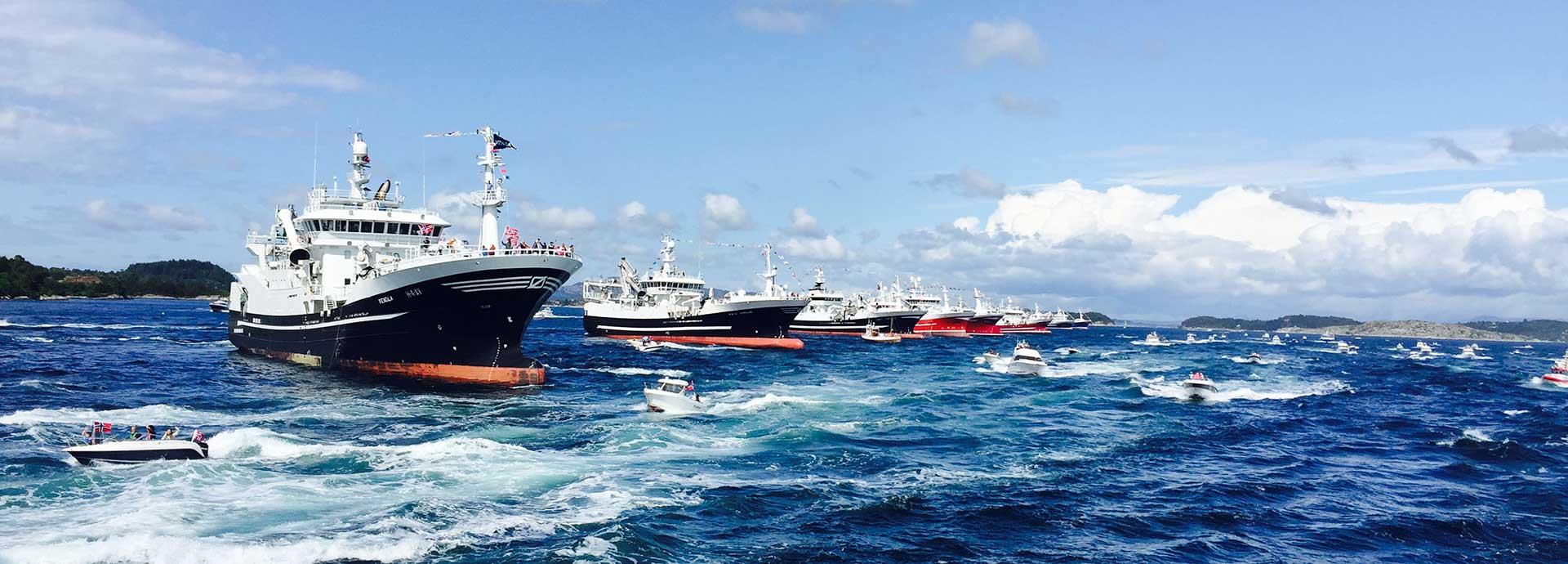

Although the practice of fishing dates back at least 40,000 years, the development of new technologies continues to advance the industry. In the last two centuries, vessels have gotten substantially larger and more complex, incorporating the ability to properly store and even process fish on board.
Purse seiners/pelagic trawlers are high-tech vessels normally used for fishing of species like herring, mackerel and whiting. The fish are pumped from the net on board the vessel for storage in refrigerated seawater tanks or processed in an onboard factory.
Stern trawlers, another type of advanced fishing vessels, drag nets out at sea to catch primarily bottom white fish and tooth fish. They operate 24/7 and year-round so all design improvements to lower fuel costs have a strong effect on the profitability of operations.
Wärtsilä’s new, optimised stern trawler design will reduce fuel consumption and notably increase overall vessel efficiency compared to currently available designs. The propulsion system is based upon the Wärtsilä 31 engine, which has been recognised by Guinness World Records as being the world’s most efficient 4-stroke diesel engine.
“Stern trawlers can be out fishing for up to 350 days a year so fuel consumption is, therefore, an extremely relevant consideration. Our new design features the very latest technologies and has been developed to offer the fishing industry lower fuel costs and greater possibilities for profitable operations,” says Ove Wilhelmsen, GM Sales, Fishing Vessels and Managing Director, Wärtsilä Ship Design Norway.

The propulsion system of the new stern trawler is based upon the Wärtsilä 31 engine.
More efficient options
The Wärtsilä 31, medium-speed, 8, 10, 12, 14 or 16-cylinder, 4-stroke engine is available in diesel, dual-fuel or pure gas versions, and has the world’s highest fuel consumption efficiency of any engine, clocking in at 165 g/kWh, and has a power range requirement from 4.2 to 9.8 MW.
“The marine industry is focusing more than ever on efficiency and flexibility. The validation of the Wärtsilä 31 as being the most efficient four-stroke diesel engine in the world speaks for itself. When this is combined with advanced hull design optimization in a holistic system integration approach, ship owners and operators now have a more efficient option for improving vessel operations and reducing costs. The Wärtsilä 31 clearly redefines efficiency,” says Wilhelmsen.
Besides the new Guinness World Record-breaking engine, Wärtsilä’s offering includes a new 2-speed gear system allowing for greater propulsion efficiency and hybrid fuel operation, as well as a single-propeller hull design.
“Cost savings of EUR 1 million are not impossible to achieve with greater fuel efficiency,” says Wilhelmsen, adding how such 40-man-strong trawlers can typically cost between EUR 20–40 million to build, and are usually built at shipyards in Norway, Denmark, Poland, Turkey or Spain.
“We know the particular needs of the offshore fishing industry quite well,” comments Wilhelmsen. “There are several thousand fishing vessels in the world, and over the next 10 to 15 years many of these will need to be replaced. So the trawler market is very interesting for us.”

Keeping pace with the progress
As the world’s fleet of fishing vessels continues to turn over, there will be increasing emphasis on measures to minimise the effect of fishing activities on the marine environment. These measures include the selection and application of appropriate technologies on board, such as those that minimise the emissions produced by the vessels and that employ energy efficiently during the operation of any applied technologies on board. Through this process, Wärtsilä technologies will be keeping pace with the progress.
A case in point is Rav the first of many new purse seiner/pelagic trawler combination vessels, which is being built by Danish yard Karstensens Skibsværft for Norway’s Peter Hepsø Rederi. Expected to be delivered in October 2018, Rav will incorporate the latest Wärtsilä technologies in engine, battery and gear-box design and is set to be one of the most efficient fishing trawlers in the world.
Did you like this? Subscribe to Insights updates!
Once every six weeks, you will get the top picks – the latest and the greatest pieces – from this Insights channel by email.


